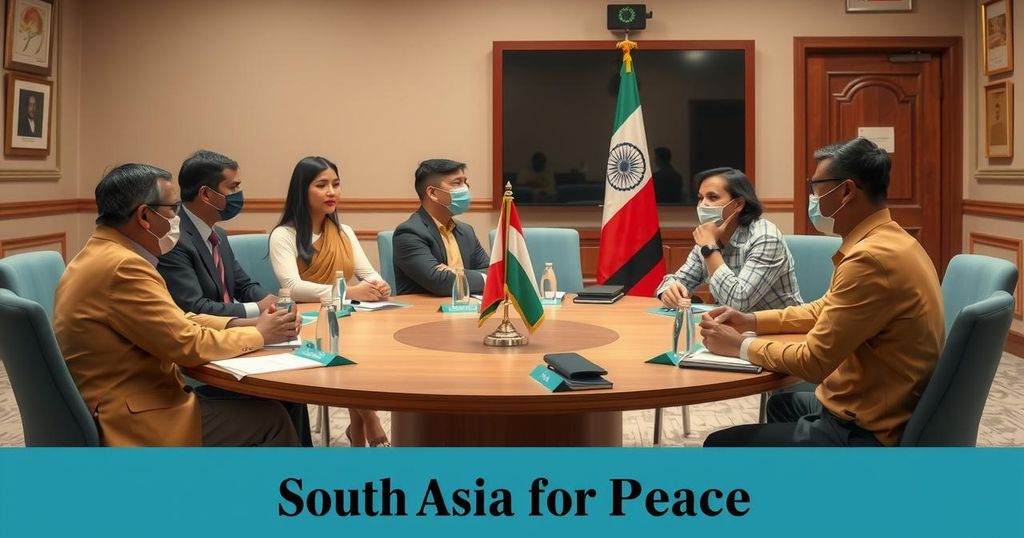Vance, Rubio Played Key Roles in India-Pakistan De-escalation, Says Trump Nominee

Paul Kapur, nominee for Assistant Secretary of State for South and Central Asia, highlighted the roles of Vice President J.D. Vance and Secretary of State Marco Rubio in urging restraint during the recent India-Pakistan crisis. He stressed the importance of economic collaboration and security partnerships with both nations and regional neighbors. The hearing focused on U.S. interests in fostering peace and stability in South Asia against a backdrop of ongoing tensions.
During a Senate confirmation hearing on Tuesday, Paul Kapur, President Donald Trump’s nominee for Assistant Secretary of State for South and Central Asia, told lawmakers about the crucial roles played by U.S. Vice President J.D. Vance and Secretary of State Marco Rubio in the recent de-escalation of tensions between India and Pakistan. “As somebody from the outside looking in, it appeared to me that the Secretary and the Vice President were actively engaged in using their good offices to encourage de-escalation,” Mr. Kapur stated at the Senate Foreign Relations Committee meeting.
This discussion follows a tense period between the two nuclear-armed nations, which began after a deadly terrorist attack in Pahalgam, attributed to groups based in Pakistan. Mr. Kapur, currently a professor at the U.S. Naval Postgraduate School, emphasized the importance of the U.S. encouraging dialogue between India and Pakistan, referring to the ceasefire that has been established, albeit considered fragile by many. “President Trump and Secretary Rubio have taken credit for bringing about the ceasefire,” Sen. Chris Van Hollen remarked.
The Senator continued by noting that although the Indian government denies that U.S. mediation played a role in the ceasefire, there is still a significant need for both countries to engage in discussions on pressing issues. Notably, Mr. Kapur advocated for advancing U.S.-India relations, highlighting not only security interests but also a mutual desire for economic collaboration and strategic technology sharing. He mentioned, “Facilitating technology sharing and innovation, and ensuring access to the energy necessary to fuel our economies” would be priorities if he is confirmed.
In his remarks, Mr. Kapur pointed out the importance of broader regional dynamics, identifying nations like Sri Lanka, Bangladesh, Nepal, Maldives, and Bhutan as key players in the stability of the Indo-Pacific region. He further elaborated on the need for the U.S. to enhance cooperation with these countries to counterbalance China’s growing influence and strengthen trade relationships. “If confirmed, I’ll advocate for enhanced U.S. cooperation with these countries to bolster our security,” he said.
Sen. James E Risch, the Chairman of the Senate Foreign Relations Committee, expressed deep concerns regarding the recent India-Pakistan conflict, reiterating the importance of ongoing counterterrorism collaboration within the region, stating, “The U.S. shares national security interests with both countries, and we need a peace between them.” This underscores the delicate balance the U.S. aims to maintain as it navigates its relationships with both India and Pakistan, particularly in light of ongoing tensions that threaten the stability of South Asia.
In summary, Paul Kapur emphasized the significant roles of U.S. leadership in de-escalating India-Pakistan tensions during his Senate confirmation hearing. He outlined the necessity of collaboration with both nations, as well as regional partners, to build economic ties and secure peace amidst ongoing threats. His confirmation could be pivotal in shaping U.S. foreign policy in South Asia, especially regarding security cooperation and the fight against terrorism.
Original Source: www.thehindu.com








